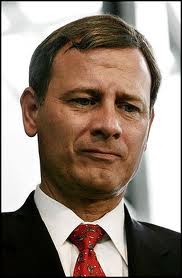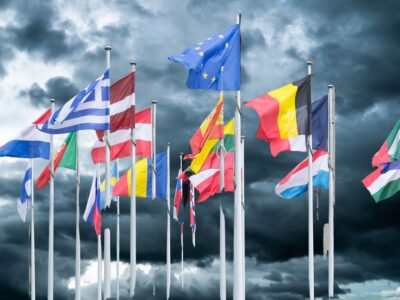What Beijing Could Learn From George Washington
But It Seems More Interested in Following John Roberts
Alex’s terrific op-ed raises two key questions, one snide and disturbing, the other more profound.
As for the first, I couldn’t help notice this point in the middle of his piece:
Courts often refuse to even accept difficult or sensitive cases. The Supreme People’s Court has adopted rules for breaking up class-action lawsuits and relegating individual suits to co-opted lower-level courts. Citizens are therefore often unable to use the law against polluters, especially ones with strong ties to the government. As a result, citizen supervision has been blunted and pollution only grows. The new law may empower citizens, but it still fails to correct systemic barriers that restrict citizen action in practice.

Hmmm….where have I seen this before? A Supreme Court breaking up class actions in order to use state power to assist capital? Who on earth might have used a similar technique? Isn’t it great that the United States is such a thriving democracy that no one could ever think seriously to equate the two?
More intriguing from a scholarly standpoint — and from the standpoint of anyone who want to support stable democracy — is this point:
China’s half-hearted effort at legal reform is a major risk for the party-state. It raises public expectations for a better environment, but fails to lay sufficient groundwork for improvements in environmental performance. The resulting growth in under-regulated pollution will lead to more public grievances. While many citizens may not be willing to risk aggressive action, an increasing number will conclude that only disruptive activism can force the government’s hand. Ever-increasing environmental protests throughout the nation have already highlighted the costs of this approach to the party-state.
China’s leaders are hardly alone in this sort of governance pathology: it is all-too-common for leaders to make concessions only after demands come, which only whet the appetites of protestors. The point is to relinquish power before it is demanded, giving the leadership credibility and making it clear that militant demands are not the only way to expand freedom.
The master of this was George Washington, who famously resigned his commission after America triumphed in the Revolutionary War, even though he easily could have installed himself as dictator. This gesture gave him enormous authority: he could be entrusted with power because people knew he would give it up. Washington’s actions were so unusual that George III, upon hearing the news, simply refused to believe it. Said the King: “If he does that, he will be the greatest man in the world.”
Beijing’s leaders don’t have to be the greatest men in the world: just a little mediocrity would suffice.








Reader Comments